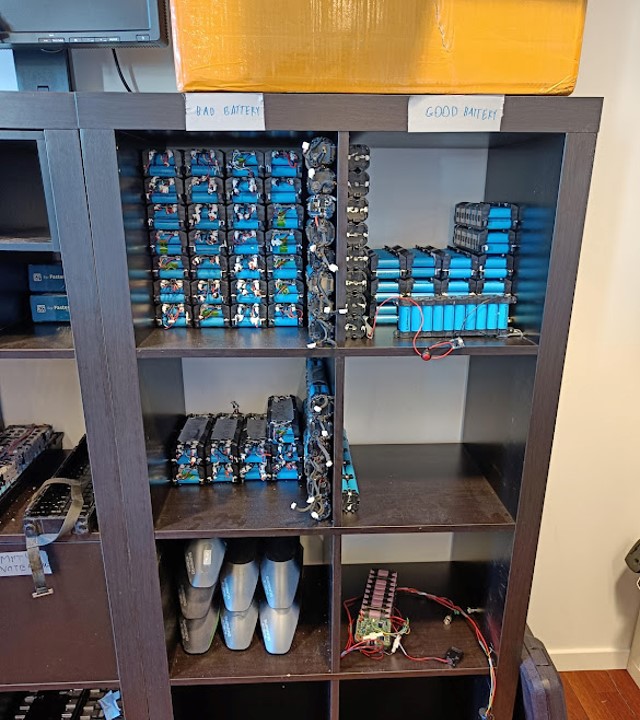Article begins
A car battery sits on a table in an industrial facility in the suburbs. It takes at least two people to handle this used and faulty lithium car battery. There are precautions to consider—the battery must be fully discharged, placed on a table, examined, and disassembled. The table and the care taken, the unique protective uniforms, gloves, and precautions, resemble a hospital operation table. Only a few batteries are examined daily since it is a highly individual process. As yet there are only a few batteries; most have beaten the prognosis of their longevity and last longer than predicted.

In an office, I hold a little glass jar filled with a black mass. The shiny black particles are what remains of the shredded lithium batteries. The mass is precious: its highly valued and much needed lithium materials can be retrieved and put back into production.
One needs a fully sterile and controlled environment such as a lab to work with battery materials, especially lithium. Technicians use a big, sealed box to work with the battery materials via long gloves that reach into the interior.
Activists in Northern Norway spend a summer at a camp near a fjord, protesting the reopening of a nearby copper mine and plans to dispose of mining residues in the water. We sit in a circle in the Sami lavvo (tent), coffee brewing on the fire, and listen to the stories about protests 40 years ago.
“Yes, it is fascinating; I feel it is like the new oil,” says an employee at one of the planned battery factories.
One day, I hold a cobalt bar at the industrial facility. I place it carefully back into a box with other cobalt bars, all perfectly shaped and precious.

